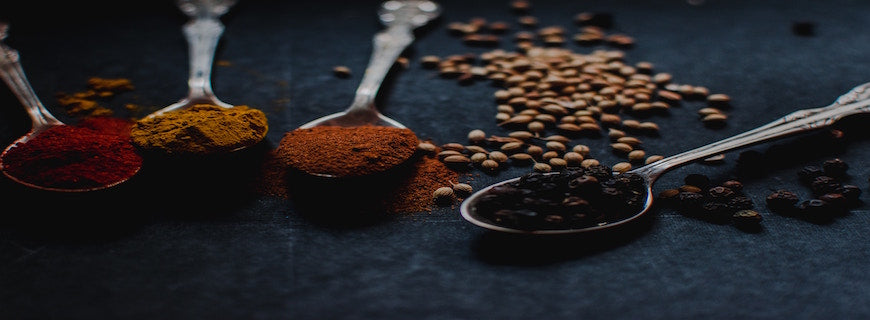Arthritis is one of the most debilitating yet common ailments for older adults, affecting nearly 350 million people worldwide.
The word arthritis literally translates to “joint inflammation,” and that’s exactly what it is.
Over time, the cartilage that protects the joints breaks down, leading to inflammation, pain and the eventual degradation of the joint tissue.
If you’ve suffered from arthritis for a long period of time, there’s a good chance you’ve tried all of the traditional remedies available, including analgesics, non-steroidal anti-inflammatory drugs (NSAIDs) and maybe even prescription painkillers.
While treating arthritis with medication provides much-needed relief for many sufferers, there are many reasons why you might seek more natural arthritis remedies.
Perhaps you’ve experienced challenging side effects that outweigh the benefits or maybe you’ve found that traditional treatments are too costly.
Many people who mitigate arthritis pain with medication opt to supplement with natural treatments to further quell the pain.
No matter your reason for giving the natural route a go, you might want to consider the following options to add to your treatment plan.
Herbs & Supplements for Arthritis
The Arthritis Foundation has published a list of natural and herbal supplements that may help treat arthritis, including bromelain, chondroitin sulfate, glucosamine, turmeric and essential vitamins and minerals.
These can be taken orally through capsules, while some can be administered topically with essential oils. Let’s take a look at some natural supplements that have been scientifically proven to provide some great benefits.
• Bromelain
Bromelain is a naturally-occurring enzyme found in the pineapple plant that’s thought to help reduce swelling and relax muscles. Most people take bromelain orally through foods, supplements, teas and tinctures.
Whether or not bromelain actually works to treat pain is still up for debate, but several studies indicate that it offers some anti-inflammatory benefits.
• Chondroitin sulfate
This chemical is typically found in joint cartilages of both humans and animals. Adding supplemental chondroitin sulfate to your diet is thought by some to slow the breakdown of cartilage, which can help reduce arthritis pain.
One study showed that arthritis sufferers who took the supplement showed a significant decrease in hand pain and hand function after about three months of treatment.
• Glucosamine
Like chondroitin sulfate, glucosamine is a natural component of cartilage. It’s usually derived from the shells of shrimp, lobster and crab, as well as through vegetables. The effects of glucosamine appear to be proven and broad-spanning, with studies showing that it could provide significant pain relief of arthritis.
• Turmeric
The spice rack staple turmeric, derived from a flowering plant similar to ginger, has recently made headlines for its suggested pain-fighting power. But is it actually all it’s cracked up to be?
Actually, yes! There are plenty of studies showing that turmeric has anti-inflammatory properties and modifies responses of the immune system.
• Probiotics
According to Dr Susan Blum, as outlined in her book Healing Arthritis, “Probiotics are thought to improve all the functions of the good flora that we reviewed, including helping T-regulator immune cells work better and live longer, turning off inflammation, and repairing the gut lining and tight junctions.”
The potential of probiotics to help with arthritis has also been explored by Arthritis.org, with the author pointing out that beneficial bacteria reduces “common biomarkers of inflammation, including C-reactive protein.”
Lactobacillus casei and L. acidophilus are the two most commonly-cited anti-arthritic strains.
• Omega-3
Decades of research shows that omega-3 fatty acids decrease the production of pro-inflammatory cytokines, one of the main drivers of arthritis.
A Danish meta-analysis of 22 separate trials, published in 2017, meanwhile found that omega-3 marine oil had a ‘favourable effect’ on arthritis patients, and a ‘significantly favourable effect’ on rheumatoid arthritis patients in particular, significantly improving inflammation.
• Magnesium Oil
The idea that magnesium oil might be helpful for arthritis has been well-explored, including in this very blog. Here’s an excerpt: “According to a cross-sectional study from 2015, “magnesium intake is inversely associated with radiographic knee osteoarthritis and joint space narrowing. It supports potential role of magnesium in the prevention of knee osteoarthritis.”
Medicinal Meditation and Eastern Medicine
If sitting still in silence for a half an hour a day could keep you pain-free, would you do it?
According to some studies, that just might be the case. Meditation is a mind-body practice with the primary goal of boosting feelings of calm, mindfulness and relaxation
When used to treat physical ailments and depression — which often go hand-in-hand — meditation is referred to as mindfulness-based stress reduction. Several studies have shown that practising this type of meditation can slightly improve pain relief and greatly improve feelings of depression, which could lead to improved physical well-being.
Other traditional Eastern practices are employed to treat arthritis, including acupuncture and other kinds of traditional Chinese medicine. While research is limited, there are a few studies showing that sufferers of osteoarthritis may experience slightly less pain when treated with acupuncture, while sufferers of rheumatoid arthritis experienced less success with the treatment.
Other holistic approaches that work for some people include Qi Gong massage — an ancient Chinese massage technique designed to promote relaxation and healing — as well as herbal treatments.
If you’re interested in further exploring this topic, check out our article Alleviating Aches of Body and Mind with Movement.
Compression Therapy
Compression therapy is another promising natural remedy that appears to be useful for treating arthritis in the lower limbs, back and hands.
This treatment requires patients to wear compression garments — compression socks, arthritis gloves, back support garments and more — for a prolonged period of time.
Compression socks and gloves work by providing gentle pressure to the muscles and veins, improving blood flow and preventing blood clots. For many, compression garments can help reduce pain and swelling, and people who work on their feet for long periods of time often wear compression socks or hose to help prevent blood clots and pain.
Is it worth a try? Compression gloves, otherwise known as arthritis gloves (or gauntlets), have been studied with regard to arthritis. Research shows that people who wear these kinds of garments while they slept experienced a reduction in pain, swelling and stiffness.
Some styles feature copper sewn into the material, which is said to offer additional benefits to relieve pain, tiredness and swelling. The great thing about this kind of therapy is that it doesn’t interrupt your life — there are no appointments, medication schedules or extra supplements to remember to take. All you have to do is slip on a pair of gloves or socks to experience some relief.
Options to Try
While natural remedies are generally thought to be less risky than pharmaceuticals, you should still always consult your doctor before you start any new treatment plan.
He or she will be able to guide you towards natural options that are best for your particular condition and pain points and will understand side effects and risks with regard to your health record and background.
With any luck, you and your doctor will be able to design a natural arthritis treatment plan that suits all of your needs.
This guest article was written by Kaki Zell, the Vice President and co-owner of Ames Walker. When she is not working for the family business, she enjoys running, hiking, travelling, Virginia Tech football and spending time with family and friends.




























Leave a comment